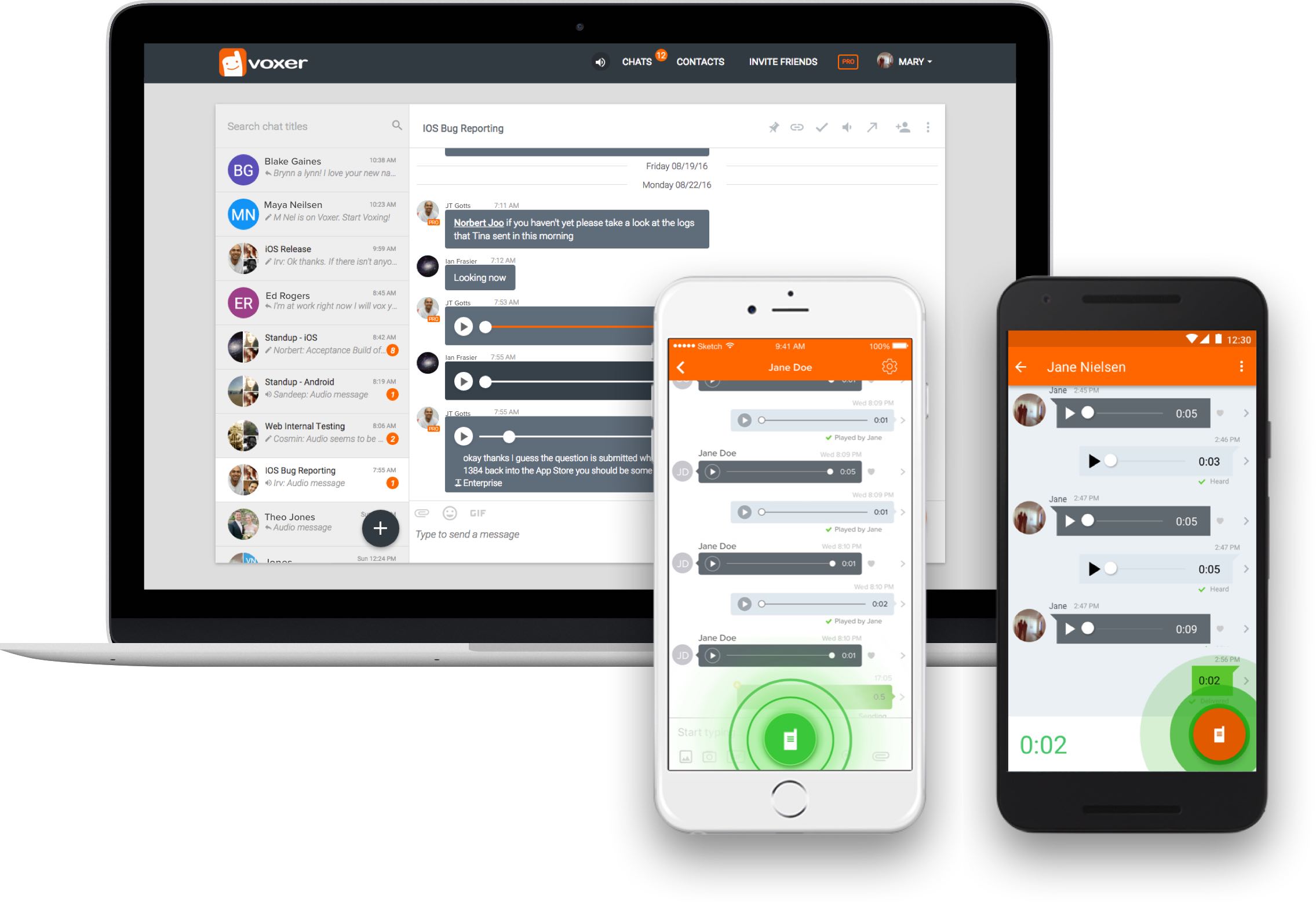8 Common Challenges Retail Workers Face

Ask anyone who’s ever worked retail, and they’ll attest to the fast-paced environment it’s known to bring. Sure, downtime is certainly something that exists in any retail store. However, the unpredictability of what will happen when means that retail workers really need to stay on their toes, ready to leap into action whenever the need arises. It’s no wonder then that retail brings with it such a distinctive set of challenges.
So many of the hurdles that retail workers must overcome on a daily basis, however, can be alleviated with the right set of circumstances. When you design your retail store with the anticipation that things can go awry, you can better prepare your workers for whatever challenge may come their way. Namely, you can remain proactive by focusing on fortifying your communication skills in the workplace.
We know you’re probably thinking that you already have that covered. But there’s a big difference between recognizing the necessity for effective workplace communication and taking the action necessary to prioritize it in the way it deserves. You may not know off-hand how to improve communication in the workplace, but the beauty is that you don’t need to. At least not yet.
Before you can apply communication-driven solutions to the many challenges your retail workers are prone to face, you need to identify what these solutions are. After all, you can’t hope to solve the problem until you determine what it is upfront. So, with that in mind, let’s discuss why communication is important in the workplace and how it can be used to rectify some of your workers’ biggest challenges.
Management style

If your managerial role involves keeping tabs on a large team, you’re bound to run into trouble without a solid communication tool to rely on. Imagine trying to assign tasks to your workers or reaching out with pertinent questions about a particular project, only to find yourself without a response.
What do you do then? How are you able to stay plugged into your work and keep the productivity flowing? If you can’t depend on your system to actively communicate with your team, there’s no point in even having one in place. Without a tool on your side, your role as a manager becomes infinitely more difficult, and you cannot stay on target with any assigned projects.
Taking stock

Assuming your retail operation deals heavily with some kind of physical product (or even if you just need to keep digitally tracking your figures), it’s imperative to your own business development and budget that you know precisely how much inventory you have in stock, what you have available for sale and how much you’ve sold thus far in a given year.
Inventory management can make or break a company, and you need a way to not only update these numbers but communicate effectively from one team member to the next to ensure that you are all on the same page. After all, a miscalculation in your inventory may prove disastrous for your business. So don’t neglect the importance of closely watching your inventory numbers.
Scheduling conflict

One of your chief contributions as the manager of a retail team is to keep the schedule straight. But last-minute changes happen all the time. An employee might need to suddenly take time off or decide to switch shifts with a co-worker, and you need a communication tool in place to track these exchanges for clarity’s sake. Scheduling conflicts may be, on some level, unavoidable.
Yet, if you don’t at least attempt to govern this closely, you may be heading for chaos. So do yourself a favor and minimize the confusion over scheduling by making in-house communication a priority. Your workers will certainly appreciate the transparency involved in having a record of all the shift-related exchanges.
Work in progress
When you or a team member is in the midst of a project, how do you let the rest of your team know? If you don’t have a definitive answer for that, then you probably want to readdress how your operation flows. In any given day, you no doubt have countless tasks that need to get done, and factoring in the unpredictability of retail, you know that unexpected complications will arise.
Therefore, you should have a system in place to manage projects, letting everyone know what has been done and when. What shape that takes is up to you, but imagine how much easier it would be to keep your productivity up if everyone knows the current status of your day-to-day workload.
Customer disservice

In your business, not every role will be customer-facing, but make no mistake: how you interact with customers is an integral part of your business. And you need to be sure that you’re on top of their needs. That, of course, means that you have to be able to communicate clearly and openly with your team members.
Miscommunication, missed messages and delayed responses can wreak havoc on your ability to tend to customer needs in a timely manner. So don’t be surprised if you run into these recurrent issues without a solid communication tool on your side. Your customers are your company’s greatest asset. Be sure to treat them that way so that you can avoid potential mishaps that may undermine your company’s future.
Budget constriction

Everything in your business needs to be well-documented, in case our above examples haven’t made that clear. Your budget, for example, is a key element that you need to watch closely. Without proper records covering how much you have on hand and how you’ve been spending it, you’re going to feel the pain eventually. How this manifests itself will be an unwelcome surprise though.
In any case, your team needs to be able to consult each other to ensure that the budget restrictions are continually kept top of mind. How else can you hope to save money and push yourself towards increased profitability?
Emergency entrance
This is more of a sweeping scenario than a specific one. But remember how we said that retail is known for being full of surprises? Well, you need to retain the ability to leap into action at a moment’s notice. Whether there’s a snafu regarding a customer or a back-end task that somehow went bad, emergencies do happen no matter how well you plan. Especially your security guard at the front door, they will need a proper means of communication in place in the event they catch someone trying to shoplift.
That means you need to be able to reach your team and get someone to attend to the situation without hesitation and without leading to additional confusion. Not having a communication tool ready to facilitate this will affect productivity and cause a trickle-down effect that may upset your entire day’s work if not acted on immediately.
Technical difficulties
We’ve made the integral role of communication abundantly clear, but not just any system will do. You need one you can depend on, and oftentimes, that may mean upgrading what you have in place. Many communication tools can be costly — eating into your aforementioned budget — or bulky and therefore difficult to lug around. Worse yet, they may not be outfitted with the capabilities you need.
Perhaps there’s no ability to store and archive messages, or the system isn’t compatible with others already implemented in your business. Now’s the perfect time to evaluate your outdated walkie talkies and consider switching it up with a more modern solution that can make your workflow easier and more effective to manage.
Communication Innovation
 Now that we’ve outlined some of the most significant challenges your workers are facing on an ongoing basis, we hope that you feel more informed and, best of all, more prepared to implement an updated initiative for how to best address any lingering gaps in your company’s communication practices. The common challenges retail workers face aren’t all as complex or memorable, but that’s exactly what makes them so much more troubling.
Now that we’ve outlined some of the most significant challenges your workers are facing on an ongoing basis, we hope that you feel more informed and, best of all, more prepared to implement an updated initiative for how to best address any lingering gaps in your company’s communication practices. The common challenges retail workers face aren’t all as complex or memorable, but that’s exactly what makes them so much more troubling.
It isn’t the big scandals that rock the very foundation of your retail workers’ world. It’s the little things, those small failings that occur again and again, that snowball into a big enough concern to undermine an entire operation. Rather than allowing these challenges to affect morale and productivity, you owe it to your business and your team to move on these while you still can, before they become even more unwieldy.
Retail team productivity is like a chain. If one link is weak, the rest is destined to fall short of accomplishing its goal of uniting every single piece. Through detailed, to-the-minute communication, you can get all your workers operating from the same mindset and set your company on a course that will help your bottom line from this day forward. Your retail sales employees will instantly be able to acknowledge that something has changed.
Most importantly, your customers will reap the benefits of a stronger communication system among your team. Whether you work in e-commerce or among department store floor employees, you’ll find that a stronger communication tool in place of your outdated walkie talkies will loosen the pressure to work harder and harder to hit the same years-old baseline. Your retail sales employees will be liberated to get more done more effectively, and those age-old challenges will be able to wither.

